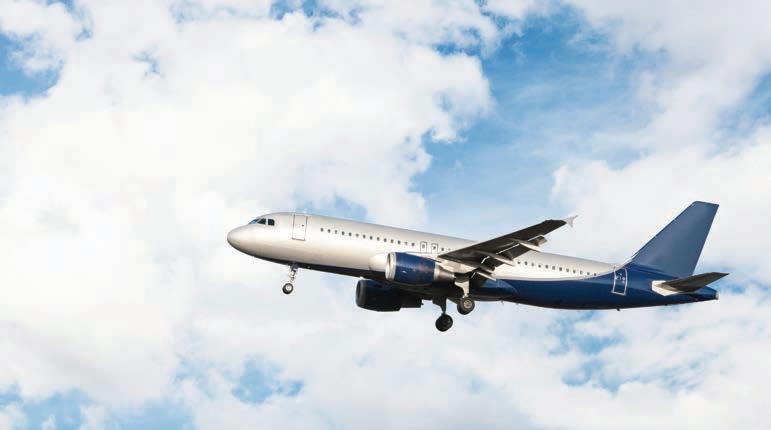
4 minute read
What Feels off in Carbon Ofsetting
from Intermania June 2020
by Intermania
en Theme
What Feels Off in Carbon Offsetting?
Advertisement
Nowadays, flying is one of the most used ways of travelling. However, it might not be the most sustainable way of travelling. Tom shares why this is the case and talks about more sustainable alternatives. Text: Tom de Rijk, member of Intermate
Somewhere between Madrid and Hampton (Virginia), Greta Thunberg was making a statement among the waves. Among the waves, instead of in the air. By sailing to the UN Climate Conference as opposed to flying, Thunberg remains faithful to her vow to avoid carbon emissions through flying during her commitment to tackle the climate crisis. To follow up, pollution due to traveling by means of burning fossil fuels will be at the center of this article – with flying in particular. To what extent is traveling by plane better or worse than traveling by other means, and what about the in popularity increasing "compensation projects”?
First, some numbers: a domestic, short distance flight is worth 133 grams in CO2 emissions per passenger per kilometer, sometimes varying up to 254 grams when altitude and other greenhouse gasses are taken into account. In comparison, traveling by trains emits 41 grams per passenger per kilometer. In order to avoid measurements and opinions to be biased, one should take into account that usual travel ndistances and passenger occupancy vary notably between means of travel. It is therefore rather difficult to compare these traveling methods without any further situational context or constants. Because of that, traveling by plane is widely
seen as one of the worst ways to travel long distances emission-wise. In a societal context, alternative travel methods, carbon compensation and -ultimately- flight shaming have found established positions in the mobility discussion. In order for someone to travel by plane while remaining ecologically “at peace” with themselves, numerous initiatives are offering options to compensate the carbon emissions. These carbon compensation projects can vary from funding tree plantations, to buying so-called “carbon credits” on a larger scale. This wide array of options enables solo consumers and airline conductors to compensate alike, since increased carbon emission is a problem the concerns everybody.
I would like to focus on the compensation
options that are provided to us as solo consumers. The idea is to reduce your carbon footprint, or make it remain constant, while still taking the flight. The plane you are traveling with will not change a bit, but your monetary efforts will be put to good use somewhere else on the planet, in order to compensate for emissions of your flight. This would minimize any negative changes to your carbon footprint. This process of compensation is often referred to as

“carbon offsetting”. Most appealing to a lot of flight consumers are the carbon offsetting services provided by airlines themselves. As a part of the global aviation treaty CORSIA, KLM and Transavia aim to achieve carbon neutral growth, while maintaining their position in the market. In order for them to achieve this, they provide the option for passengers to pay extra on top of their ticket, which will in turn be invested in sustainability projects (e.g. research towards fossil fuel replacement and forest (re-)plantation projects). Apart from airline-regulated initiatives, there are stand-alone organizations that will calculate your CO2 emission per flight, and offer several alternatives that you can fund in order to compensate for the calculated emission.
This all sounds well and good, but there is a rising debate on whether these initiatives are operating under the right ideologies. A lot of these carbon offsetting projects are initiatives managed by large profit-making companies, and are sometimes exposed as nothing but beneficial mechanisms which pry on guilt and the psychological effects behind flight-shaming. One could go as far and state that the whole idea behind carbon offsetting is just a smart manner of dodgy accounting – not only in the world of airlines. To quote George Monbiot, journalist at The Guardian: “you buy yourself a clean conscience by paying someone else to undo the harm you are causing.” Additionally, the psychological effects behind the compensation are undergoing heavy criticisms, as more and more vidence is presented that it is more about buying off guilt than changing behavior. Arguably, the latter should be the main goal of carbon footprint measures in flight: raising awareness about the fact that your flight is affecting the environment and urging people to rethink their method of transport.
The Kyoto protocol laid out rules for carbon offsetting projects, but it proves hard to determine which projects actually carry these out. If you are thinking about compensating your next flight, I would like to urge you to look into the type of compensation – and if you really want to make in impact, think about whether flying is the way to go.











